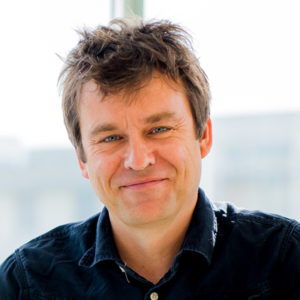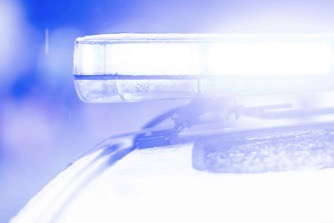Social isolation almost doubles the risk of developing dementia, the risk of heart attacks and stroke increases by 30 per cent, and the risk of cancer by 25 per cent. That’s what behaviourist Dr Dirk Van Rooy tells DANIELLE NOHRA
WHILE the nation is self-isolating from the dangers of the coronavirus, behavioural insight specialist Dr Dirk Van Rooy warns of other hidden health risks that will arise from isolation.

“The government’s between a rock and a hard place. [They need to] protect residents, by socially isolating them from the potentially deadly virus, but social isolation, itself, has health risks,” he says.
“For instance, the risk of developing dementia almost doubles, the risk of heart attacks and stroke increases by at least 30 per cent, and the risk of cancer increases 25 per cent.”
While there’s no clear solution to managing both health risks, Dr Dirk says there are things that can be done to help this new social recession.
“One of the things that’s become apparent is the collapse in social contact, not just socially, but also physically,” he says.
“We’re still connected in a virtual way through social media but physically, we’re distant.
“[Isolation] tends to be particularly hard on the population that’s already vulnerable to both isolation and loneliness to begin with, like older adults, people with disabilities and people with pre-existing health conditions,” he says.
“Those are the cohorts of groups that typically struggle with isolation and loneliness and the current social recession is making it worse.”
There are some statistics doing the rounds from mobile GPS data, according to Dr Dirk, who says about two weeks ago people in Sydney were moving around at about 93 per cent of normal, and that has now dropped below about 50 per cent.
“That’s a huge drop into the extent people are moving around and that poses some serious health problems,” he says.
There is a difference between loneliness and isolation, too, he says. People can be socially isolated without feeling lonely, or lonely without being socially isolated.
“But both loneliness and isolation have clear effects on health and they both increase the level of stress hormones in the body,” he says.
“That then leads to poor sleep, a compromised immune system and cognitive decline in older people.
“There’s also a wide range of research that shows social isolation leads to depression and there’s a relationship between social isolation and depression, anxiety and thoughts of suicide.”
In general, during this time of isolation, Dr Dirk encourages individuals to ramp up their virtual communication.
“We know from research, things like video calls and phone calls provide a richer interaction than just texting,” he says.
“It becomes more difficult for those groups that would have been more vulnerable to begin with such as older people and people with health issues.”
Dr Dirk says it could be argued that the social recession is the more important one, and if there’s a focus there, the economic impact will follow.
One way to help people feel less isolated and lonely could be through technology, says Dr Dirk, but it can be hard for older people who are less tech savvy.
At the moment, Australia is seeing a lot of people losing jobs and Dr Dirk says social support would help these people as well.
“When you lose your job and become unemployed you’re not just losing your income, it comes with a lot of psychological losses,” he says.
“You lose your professional identity, which is very important to a lot of people. We know that when people lose their job there’s a big drop in self-esteem and confidence, they lose their daily routine, there’s no purposeful activity to engage with and they lose that working social network. That’s a lot to lose at the same time.
“The key pathway to loneliness and social isolation is through stress and losing your job increases stress.
“Significantly, people are going to be in this position and it’s probably hard to get out of this position without help, and that doesn’t just mean financial help.”
If situations such as domestic violence, depression and health problems arise from this pandemic, Dr Dirk says there’s going to be an immense pressure on the community sector.
“The people who are best placed to deal with these situations are our health care professionals in the community organisations and those are the exact services that have almost been defunded over the last eight years,” he says.
“Social support is one of the most important means of reducing stress. We, as humans, are social animals and what COVID-19 is doing, is threatening our social connections.
“We’ve evolved to feel safe in groups, it’s pretty much hard-wired in our brains to be social, which is why we experience isolation as a physical state of emergency. As soon as that social connection drops away, it creates a state of chronic stress in our bodies.”
The Australian Psychological Association has already indicated that there’s a global issue around loneliness and isolation, according to Dr Dirk, who says it will be exacerbated by this crisis.
“But as soon as people are exposed to some social support, the benefits can come quite quickly,” he says.
“You can probably recover from loneliness quicker than the actual virus [which is why] it’s fundamental for governments to create jobs, and not only create jobs but also create jobs that improve the lives of others as well.”
Who can be trusted?
In a world of spin and confusion, there’s never been a more important time to support independent journalism in Canberra.
If you trust our work online and want to enforce the power of independent voices, I invite you to make a small contribution.
Every dollar of support is invested back into our journalism to help keep citynews.com.au strong and free.
Thank you,
Ian Meikle, editor




![For graphic designer Tracy Hall, street art is like any artwork, her canvas has been swapped out for fences and plywood, her medium changing from watercolours to spray paint.
A Canberra resident for 13 years, Tracy has been a street and mural artist for the past five.
Her first exploration into grand-scale painting was at the Point Hut toilets in Banks five years ago. “They had just finished doing up the playground area for all the little kids and the words [of graffiti] that were coming up weren’t family friendly,” she says.
“So I ended up drawing this design and I got approval for the artwork.”
Many of Tracy’s time-consuming artworks are free, with thousands of her own dollars put into paint.
@traceofcolourdesigns
To read all about Tracy's fabulous street art, visit our website at citynews.com.au or tap the link in our bio! 🎨🖌
#canberranews #citynews #localstories #canberrastories #Citynews #localnews #canberra #incrediblewomen #journalism #canberracitynews #storiesthatmatter #canberralocals #artist #streetart #streetartist #StreetArtMagic](https://scontent.cdninstagram.com/v/t39.30808-6/490887207_1225841146218103_6160376948971514278_n.jpg?stp=dst-jpg_e35_tt6&_nc_cat=106&ccb=1-7&_nc_sid=18de74&_nc_ohc=MUiEmedc4VAQ7kNvwHTUMX_&_nc_oc=Adk-5HjcsfQwB-n_l8zetmr0YqMaupGjrl2gNVCZdsmkxwn-oqjBg_V7pLtGggCE43s&_nc_zt=23&_nc_ht=scontent.cdninstagram.com&edm=ANo9K5cEAAAA&_nc_gid=ArypbXJrhJlgkEK_eVch4g&oh=00_AfG8ftIXR22MgCATlN0LVjY-fBO4qR2nx6yZcRB9-XzjrQ&oe=6808E914)




Leave a Reply